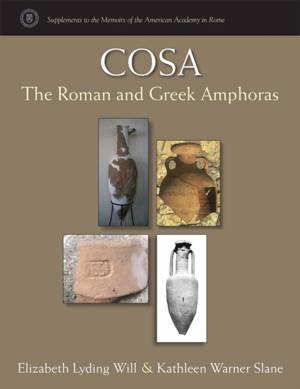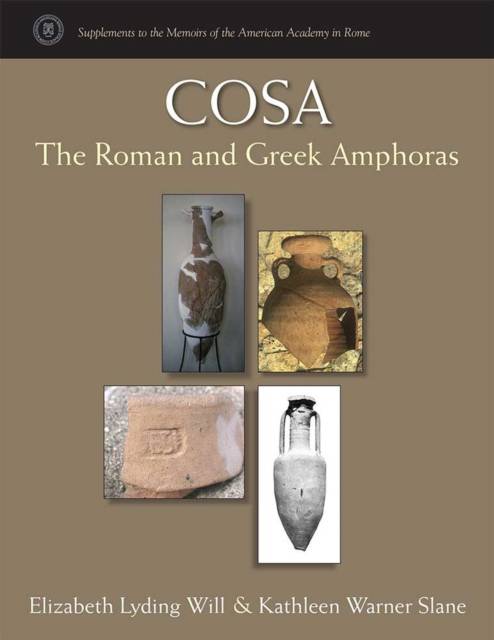
En raison d'une grêve chez bpost, votre commande pourrait être retardée. Vous avez besoin d’un livre rapidement ? Nos magasins vous accueillent à bras ouverts !
- Retrait gratuit dans votre magasin Club
- 7.000.000 titres dans notre catalogue
- Payer en toute sécurité
- Toujours un magasin près de chez vous
En raison de la grêve chez bpost, votre commande pourrait être retardée. Vous avez besoin d’un livre rapidement ? Nos magasins vous accueillent à bras ouverts !
- Retrait gratuit dans votre magasin Club
- 7.000.0000 titres dans notre catalogue
- Payer en toute sécurité
- Toujours un magasin près de chez vous
122,45 €
+ 244 points
Description
This long-awaited volume presents the work of Elizabeth Lyding Will on the important group of transport amphoras found at Cosa. This town has been widely recognized as a prototypical colony of the later Roman Republic and a source for trade with Gaul and Spain, so this publication of its finds has important implications for archaeologists and historians of the ancient world. Will's initial work was on Latin amphora-stamps in the eastern Mediterranean, and through the 1960s and 1970s she developed an amphora typology based on materials found in the region and at Cosa. What has not been appreciated is that this typology was not limited to stamped Republican amphoras but also included unstamped vessels, such as imperial Spanish, African, and eastern amphoras dating as late as the fifth century CE. This book shows that Will was far ahead of her time in documenting the Mediterranean trade in commodities carried in amphoras: her work not only provides a record of the amphoras found on the town-site of Cosa, but also includes a comparison between the finds from the port and the town. At the time of Will's death, her manuscript consisted of a typed catalogue of the amphora stamps from Cosa and an equal number of unstamped vessels, but was missing important elements. On the basis of extensive notes and photographs, Kathleen Warner Slane has reviewed and updated the manuscript, adding type descriptions and footnotes to materials that have appeared since Will's death as well as a framing introduction and conclusions. Appendices highlight an Augustan amphora dump on the Arx and add a catalogue of the Greek amphora stamps found at Cosa. Cosa: The Roman and Greek Amphoras will be of interest to scholars and students of Rome and its system of colonies, and also to those interested in Greek and Roman archaeology and trade in the ancient world.
Spécifications
Parties prenantes
- Auteur(s) :
- Editeur:
Contenu
- Nombre de pages :
- 304
- Langue:
- Anglais
- Collection :
- Tome:
- n° 14
Caractéristiques
- EAN:
- 9780472131433
- Date de parution :
- 03-01-19
- Format:
- Livre relié
- Format numérique:
- Genaaid
- Dimensions :
- 216 mm x 282 mm
- Poids :
- 1224 g

Les avis
Nous publions uniquement les avis qui respectent les conditions requises. Consultez nos conditions pour les avis.






